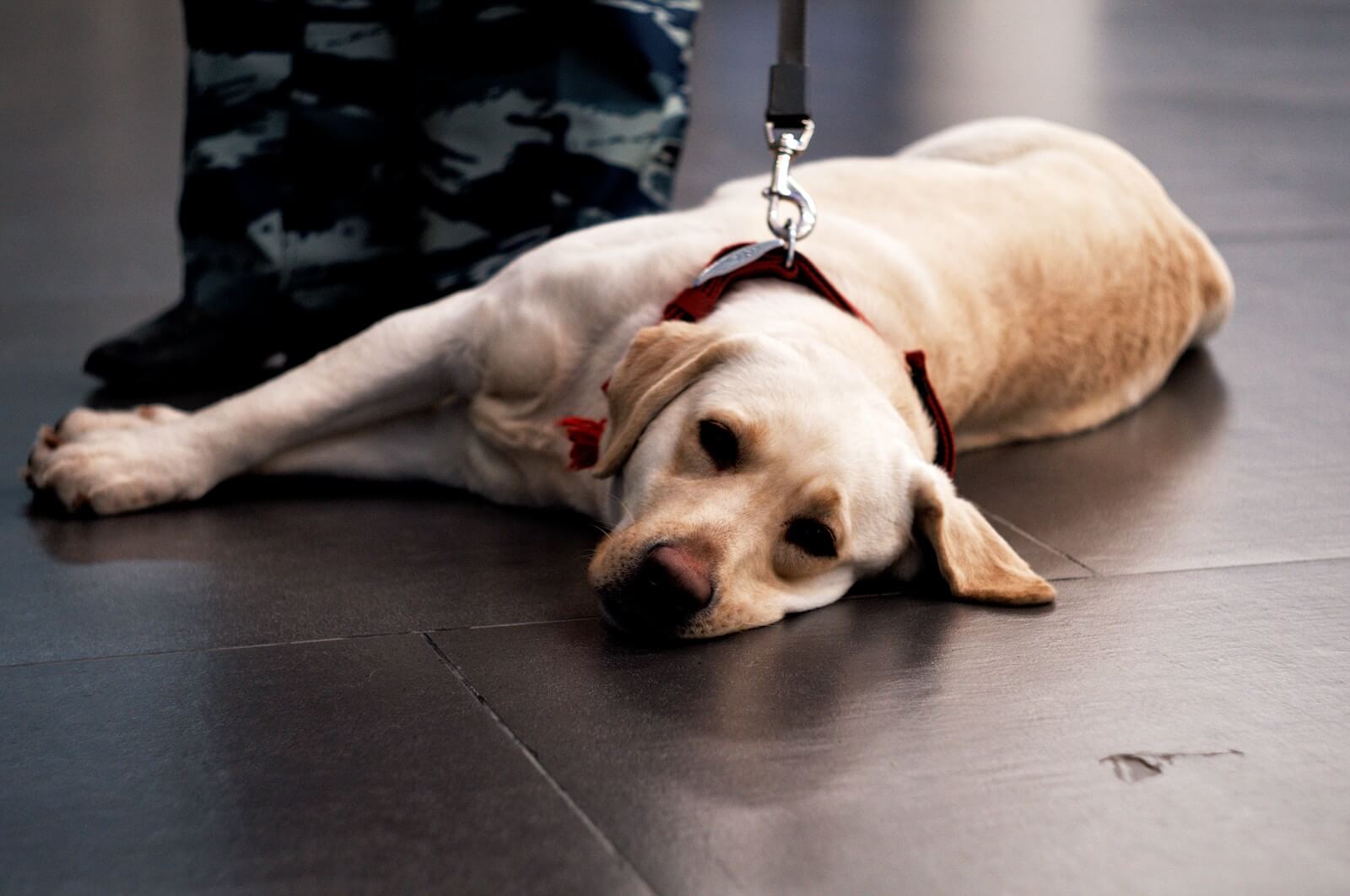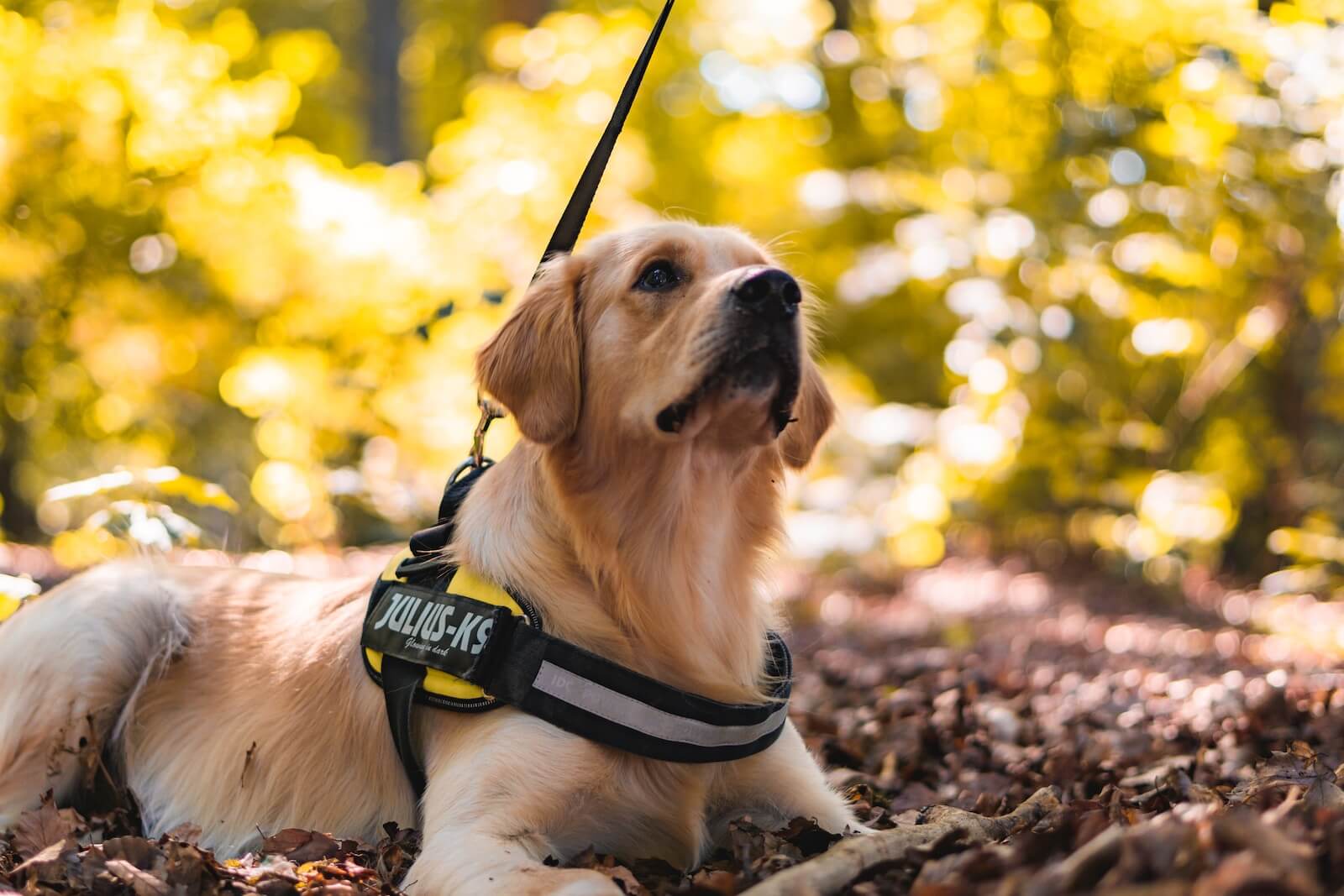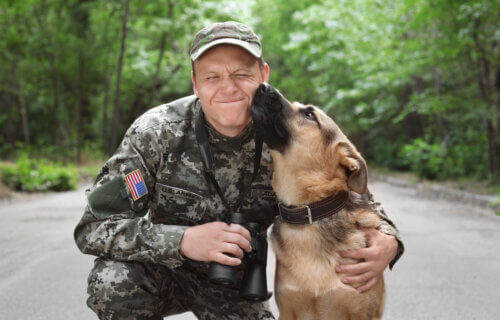Dogs are not only man’s best friend but can be a major form of support for those who have served the country. Many veterans can suffer physical and mental issues after coming back from war or dealing with life-altering events. That’s where service dogs come in. These canines enlist and dedicate their lives to helping veterans with post-traumatic stress disorder and other issues. To help find the most supportive and reliable breeds, StudyFinds has compiled a list of the top five best dogs for veterans.
PTSD is a major issue for vets after getting out of the military. A recent study reveals how certain emotions can produce different psychological outcomes. Results show that both guilt and shame factor into PTSD symptoms, but feelings of shame can actually worsen a sufferer’s symptoms in comparison to a veteran’s guilt. With the many conflicting emotions that come along with PTSD, having a service animal to turn to for support can be extremely beneficial for many veterans.
And considering that seven in 10 consider their dog to be their best friend, a service dog is that and more. They are trained to lift your spirits and reduce stress, which is the perfect combination for someone reacclimating to regular life after serving. Veterans need at least seven months to adjust to civilian life and having a furry friend by their side can help make the transition a little bit easier.
Are you a veteran looking for a reliable service dog? StudyFinds has put together a list of the top five best dogs for veterans. Did we miss an outstanding breed? Let us know in the comments below!
The List: Best Dogs for Veterans, According to Canine Experts
1. Labrador Retriever
Topping the list of best service dogs for vets is the outgoing and social Labrador Retriever. “Labradors make great emotional support animals because of their calm, friendly, and gentle nature,” writes Disabled Veteran Empowerment Network. “Labs create strong bonds with their owners and love being surrounded by their loved ones. They are extremely intelligent and easy to train. Their energetic and happy approach to life can brighten up almost anyone’s day. This breed is really great at helping individuals that struggle with leaving the house, because labs love the outdoors and exploring.”

“The lab is easy-going and extremely versatile,” says We Are The Mighty. “Combined, their intelligence and loyalty allow them to learn how to handle the ups and downs of PTS. A lab’s well-balanced personality allows them to keep a level head and, in turn, be a steadfast partner for their owners. They always try to see the best in themselves and find a way to please their owner. Dating back to the days when they were trained as game dogs, they live for approval. Their determination to please is perfect for someone who needs a dog they can rely on.”
Bully Max notes Labrador Retrievers are “one of the best breeds for mobility service.” “They’re gentle and can also be quite strong. Friendly yet focused, they want to help you out in any way that they can. They’re highly intelligent, and they make versatile helpers.”
2. Golden Retriever
Second on the list is the ever-popular Golden Retriever. “Pairing intelligence with an eagerness to please, Golden Retrievers are one of the most popular breeds for service dogs,” says Dog Training Elite. “High levels of emotional intelligence and affectionate nature make them a qualified service dog breed. Ideal for emotional support work, Goldens can also handle a great deal of physical work. From fetching medication and minimizing flashbacks to general companionship, Golden retrievers tend to be the go-to breed for PTSD service dogs for veterans.”

“The golden retriever is much like the Labrador in that both were originally bred as hunting dogs and are commonly seen in service roles. This breed is playful, happy-go-lucky, and friendly,” explains US Service Animals. “They’re highly trainable and live to please, which is why they can be such great service dogs. As their name suggests, they’ll also love fetching things for you!”
American Kennel Club writes, “Set apart by the dense golden coat from which this breed gets its name, the Golden’s sociable nature and easy-going temperament make for dogs who don’t get ruffled easily. The breed’s intelligence and eagerness to please means they are easy to train for specific tasks. Goldens are an active breed requiring daily exercise, making them a great fit for on-the-go handlers in need of a second set of eyes.”
3. Poodles
Poodles aren’t just for dog shows, they also make great companions for veterans battling PTSD. “Poodles have a reputation for intelligence, but their suitability for psychiatric assistance jobs goes beyond their smarts,” says Bustle. “Standard poodles, explains Anything Pawsable, are ‘extremely sharp, trainable dogs with an aptitude for all kinds of Service Dog specialities. They excel with alert and mobility tasks.’ Their alertness means they can be easily trained to look for triggers and signs of flashbacks, and help cope with consequences and fetch helpful items.”
“One of the most furrific qualities of the Poodle is their cleverness and ability to make someone laugh,” notes Wag Walking. “They will run around and act silly to get a smile, or just be your shoulder to cry on, whichever you need. They also come in three sizes, so it is easy to fit a Poodle into your life and home.”
Sierra Delta writes that “standard poodles work best for service-related jobs.” “These canines are intelligent and large enough to assist with many physical duties, making them excellent working dogs. Poodles are known for being simple to teach. They like working and appreciate challenges. They often have calm, amiable personalities.”
4. German Shepherd
Another valuable service dog for vets is the German Shepherd. “While not as friendly toward strangers as retriever breeds, GSDs [German Shepherd dogs] still love their families,” notes US Service Animals. “They’re known for being loyal and even protective of their family members. So if your PTSD or anxiety makes you feel unsafe, a GSD could help.”
“The first guide dogs in the 1920s were German Shepherd Dogs, and this breed remains a popular choice for service work today,” says American Kennel Club. “Intelligent, alert, fearless, and extremely loyal, GSDs can learn a wide range of tasks, making them capable of assisting with a variety of disabilities.”
Gulf Coast K9 Dog Training writes, “German Shepherds are often employed as guide dogs, as they are versatile and can help people with almost any impairment – PTSD, anxiety, and even blood sugar monitoring for diabetic patients. They are also great for mobility and balance assistance due to their large size and strength.”
5. Border Collie
Rounding out the list for best dogs for vets is the Border Collie. “Border Collies are one of the smartest dog breeds and are very easy to train,” says Disabled Veteran Empowerment Network. “Their friendly, energetic disposition makes them ideal for individuals with mental health issues. Collies are great at picking up subtle cues and can tell when there is something wrong. They love nothing more than to be able to provide comfort, security and happiness to their owners.”
“If it’s one thing a Border Collie has plenty of, it’s intuition. Border Collies have a long history of leading and retrieving,” explains We Are The Mighty. “Because of this, they’re highly tuned in to their handler’s signals, forming a deep emotional bond with their owners. In fact, when Border Collies don’t have a job to do, they tend to get a little antsy. They’re most comfortable when they’re serving others, so Border Collies are well-suited to providing physical comfort during traumatic episodes.”
Bully Max writes, “You will be hard-pressed to come across a breed more intelligent than the Border Collie. They are loyal, obedient, and as hardworking as they come. They are also valued as seizure alert dogs, as they have a knack for detecting seizures before they come on. Border Collies are very high-energy, and they almost NEED a job to do. As a result, they make wonderful service dogs. They do have a restless nature, so they aren’t content with simply lounging around all day.”
You might also be interested in:
- Best Service Dogs
- Best Dogs for Emotional Support
- Best Dog Breeds for Seniors
- Best Dog Breeds for Families
Sources:
- Disabled Veteran Empowerment Network
- We Are The Mighty
- Bully Max
- Sierra Delta
- Dog Training Elite
- US Service Animals
- American Kennel Club
- Gulf Coast K9 Dog Training
- Bustle
- Wag Walking
Note: This article was not paid for nor sponsored. StudyFinds is not connected to nor partnered with any of the brands mentioned and receives no compensation for its recommendations.

You nailed it for the poodle. I have one as my service dog. Only thing you missed was their high energy level. They need to be run every day. That might not work for vets that have mobility problems. But they are great dogs, great with kids and very comical dogs. I have only one problem. I have problems with other dogs bitting him. I now have to carry to protect him. Anybody know of a safe place to run?
You might add leonberger I have one as my service dog stays by my side . Very good at comforting and knows when I am having bad day.